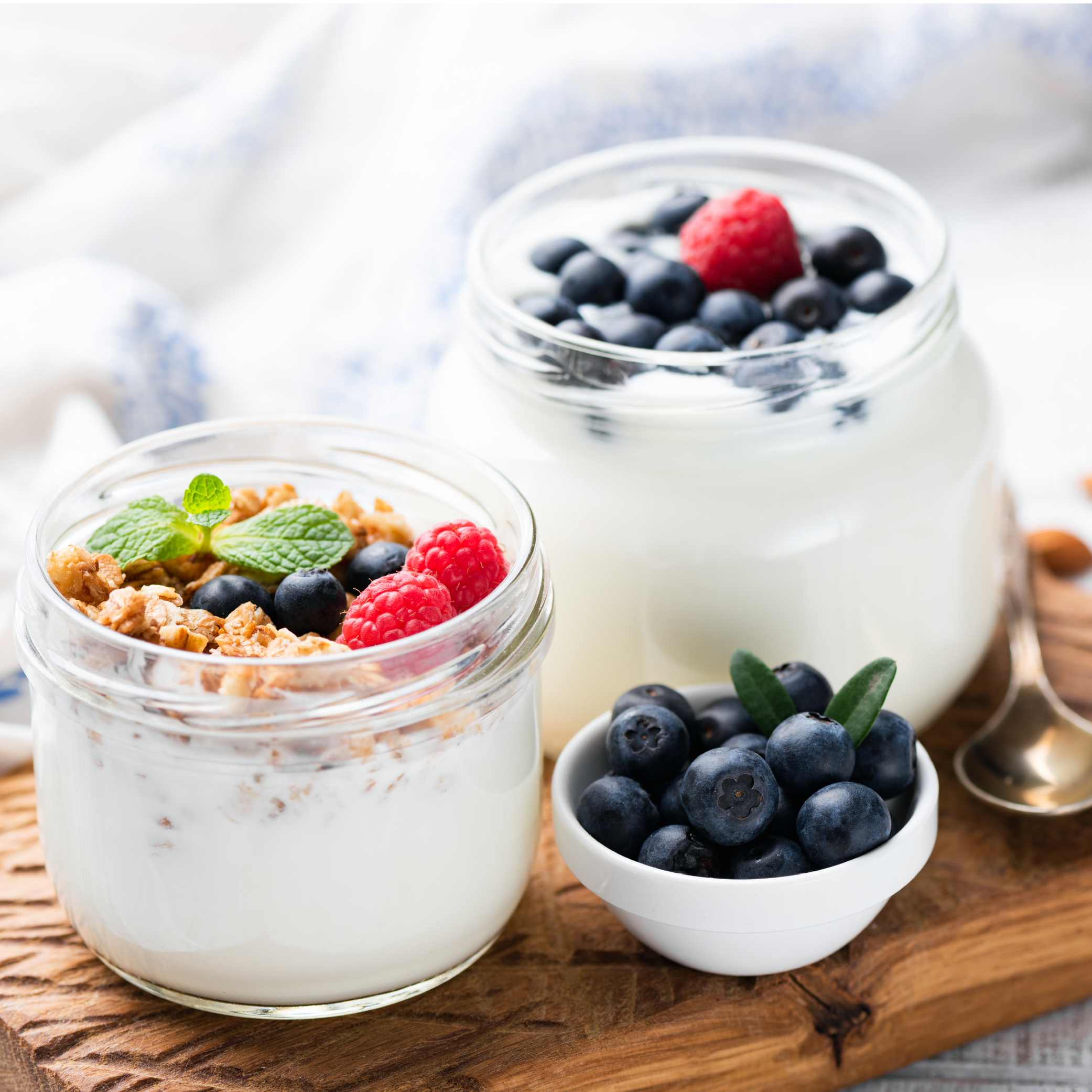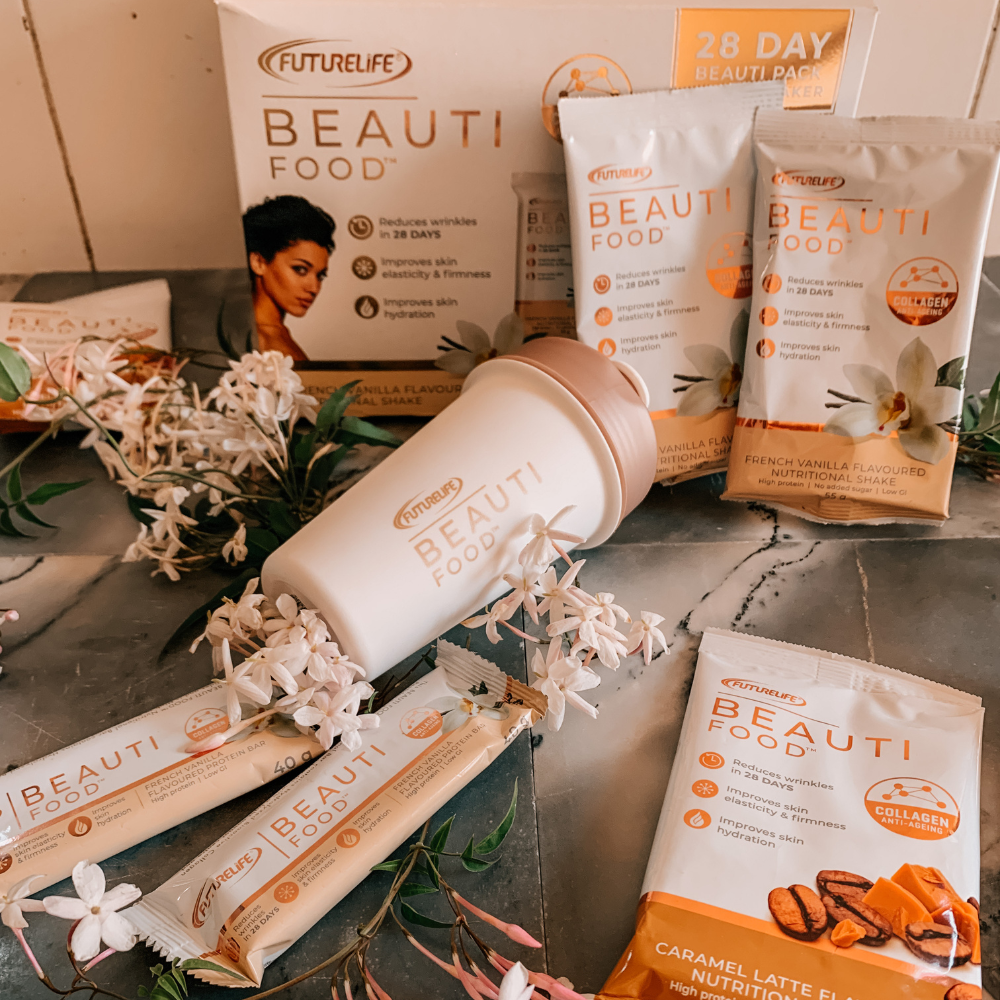PROBIOTICS AND THE QUEST FOR A HEALTHY MICROBIOME

First things first, you must be wondering what on earth a ‘microbiome’ is. Microbiome is an umbrella term for the bacteria that lives in and on your body. Our bodies are home to trillions, literally TRILLIONS of live bacteria. These stretch from your mouth, skin and even to your bum. There’s a whole tiny eco-system going on there. You’d be shocked to know that there are in fact more bacterial cells in the body than human cells. As gross as that may sound, hopefully by the end of reading this and learning about all of the amazing health benefits you will also think that bacteria are the ‘bee’s knees’, because they truly are!
HOW DO PROBIOTICS FIT IN?
Of bacteria found in your microbiome, some may be beneficial, harmful or potentially harmful. Those that are considered ‘beneficial’ usually ferment carbohydrates (use prebiotics as food), do not produce toxins and have beneficial effects on the body such as improving the immune system. The most common beneficial bacteria include Bifidobacterium, Eubacterium and Lactobacillus. These are probiotics, the army of ‘good’ bacteria which occur naturally in our digestive system already. There are several factors that affect your microbiome and the balance between ‘good’ and ‘bad’ bacteria. Some of these include diet, genetics, antibiotic use, exposure from your environment (highly sanitised to poorly sanitised), method of birth delivery (natural versus caesarean) and many more.
HEALTH BENEFITS OF PROBIOTICS & A BALANCED MICROBIOME
Our digestive health is absolutely vital to our overall health. I cannot emphasise this enough. The more we research, the more we learn how our digestive health, specifically the balance in our microbiome, affects several aspects of our health. A few of the main benefits to our health are summarised below.
Digestive health
Probiotics promote regular bowel movements and prevent constipation as well as diarrhoea. They are also commonly used in individuals with IBS (Irritable Bowel Syndrome) for symptoms such as cramping, bloating, gas, constipation and diarrhoea. Studies have shown probiotics to be useful in inflammatory bowel diseases such as Crohn’s disease and ulcerative colitis as well as H. pylori infections which can cause stomach ulcers and stomach cancer. Probiotics feed off fibres such as prebiotics which result in the production of short chain fatty acids (SCFAs) such as butyrate, propionate and acetate. These feed the cells of the gut wall and have powerful protective and metabolic effects.
Immune system
Considering that 70-80% of your immune cells exist in your gastrointestinal tract, it must seem obvious that probiotics will positively influence your immune system. Probiotics also keep bad bacteria under control by competing with them for space and food in the digestive tract. Since good bacteria is more ‘at home’ in the digestive tract and there is generally a much larger army of ‘good’ than ‘bad’, good bacteria usually win the battle. Probiotics maintain the integrity of your gut walls which prevent bacteria and toxins from ‘leaking’ into the blood system.
Weight loss and weight management
Studies have found that the bacteria in the gut of obese individuals are significantly different from a lean person. It is therefore now believed that gut bacteria may determine body fatness. A study of 210 individuals that was conducted in 2013 found that after taking the probiotic Lactobacillus Gasseri SBT2055 for 12 weeks, people lost 8.5% abdominal fat mass. When they stopped taking the probiotic, they gained the fat back in 4 weeks.
Depression and anxiety
The gut and brain are very closely linked. Some experts have called the digestive system a ‘mini-brain’ or ‘second-brain’ because the stomach and intestines actually have more nerve cells than the entire spinal cord. It is also estimated that 90% of the body’s serotonin (happy hormone) is made in the digestive tract. It therefore makes sense that digestive tract health is also connected to mental health, particularly depression and anxiety. The probiotic strains Lactobacillus helveticus and Bifidobacterium longum have been shown to reduce symptoms of anxiety and depression in people with clinical depression.
CAN YOU EAT YOUR WAY TO A HEALTHIER MICROBIOME?
Jeff Leach from the Human Food Project recommends that for overall gut health, fibre is actually the key as it selectively feeds the good bacteria in your gut which promotes a balanced microbiome. For more on prebiotics, read the article “Prebiotics & the quest for a healthy microbiome’. Consuming foods rich in probiotics are also useful and contribute to a healthy microbiome. Some examples of food sources of probiotics include:
- Fermented vegetables
- Sauerkraut
- Pickles
- Leaks
- Garlic
- Carrots
- Shredded beets
- Homemade yoghurt
- Commercial yoghurt with added probiotics – most bacteria used to make yogurt die through the process anyway so unless a commercial yogurt states that it contains “active cultures” or “probiotics” then it generally doesn’t contain any
- Kefir
PROBIOTIC SUPPLEMENTS
Probiotic supplements are beneficial in certain individuals with digestive issues and if you do choose to take probiotic supplements always look for a trusted, reputable company who undergoes third party testing and have Good Manufacturing Practices (GMP). Also take into account the quantity and probiotic strain as different strains have very different health benefits.
Probiotics therefore play a vital role in maintaining a healthy microbiome thus leading to numerous health benefits. Make sure that you take care of your microbiome with probiotic rich foods and if necessary the correct supplements.
WHERE DOES FUTURELIFE® FIT IN
FUTURELIFE® Bran Flakes and Barley with Probiotic Capsules contains 10 Capsules of HOWARU® Premium Probiotics. HOWARU® Premium Probiotics is a blend of clinically studied probiotics that has been scientifically formulated to contain two of the most beneficial probiotic strains, namely HOWARU® Lactobacilus and HOWARU® Bifidobacterium lactic. Each capsule contains 1 billion CFU (colony forming units) HOWARU® Premium Probiotics at time of manufacture. This blend of HOWARU® Premium Probiotics helps to deliver healthy digestion and natural immunity in one convenient supplements.
REFERENCES
- http://www.isapp.net/Probiotics-and-Prebiotics/The-Science
- Y Koodia et al. Effect of Lactobacillus gasseri SBT2055 in fermented milk on abdominal adiposity in adults in a randomised controlled trial. Brit J of Nutr (2013); 110:1696–1703.
- http://www.ourbodybook.com/probiotics-101/
- http://www.health.harvard.edu/newsletters/Harvard_Mental_Health_Letter/2010/August/stress-and-the-sensitive-gut









